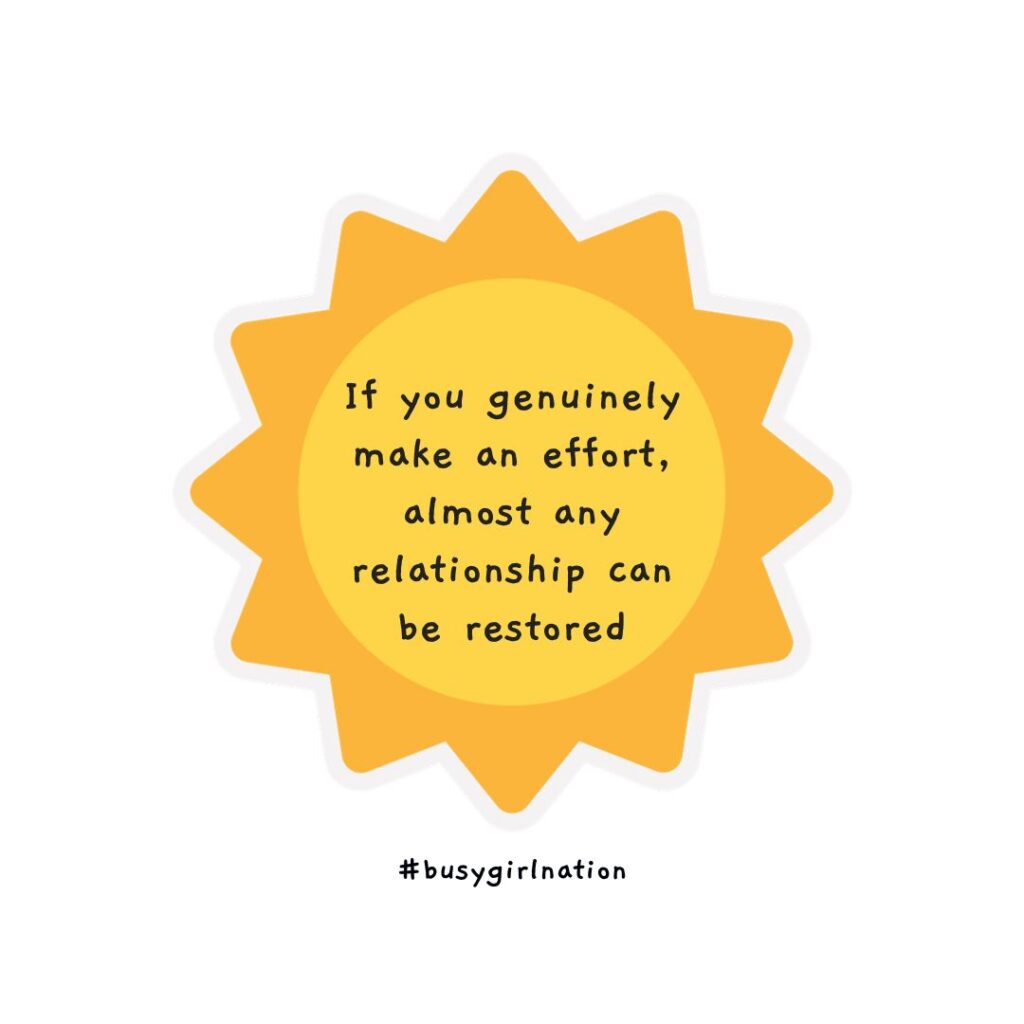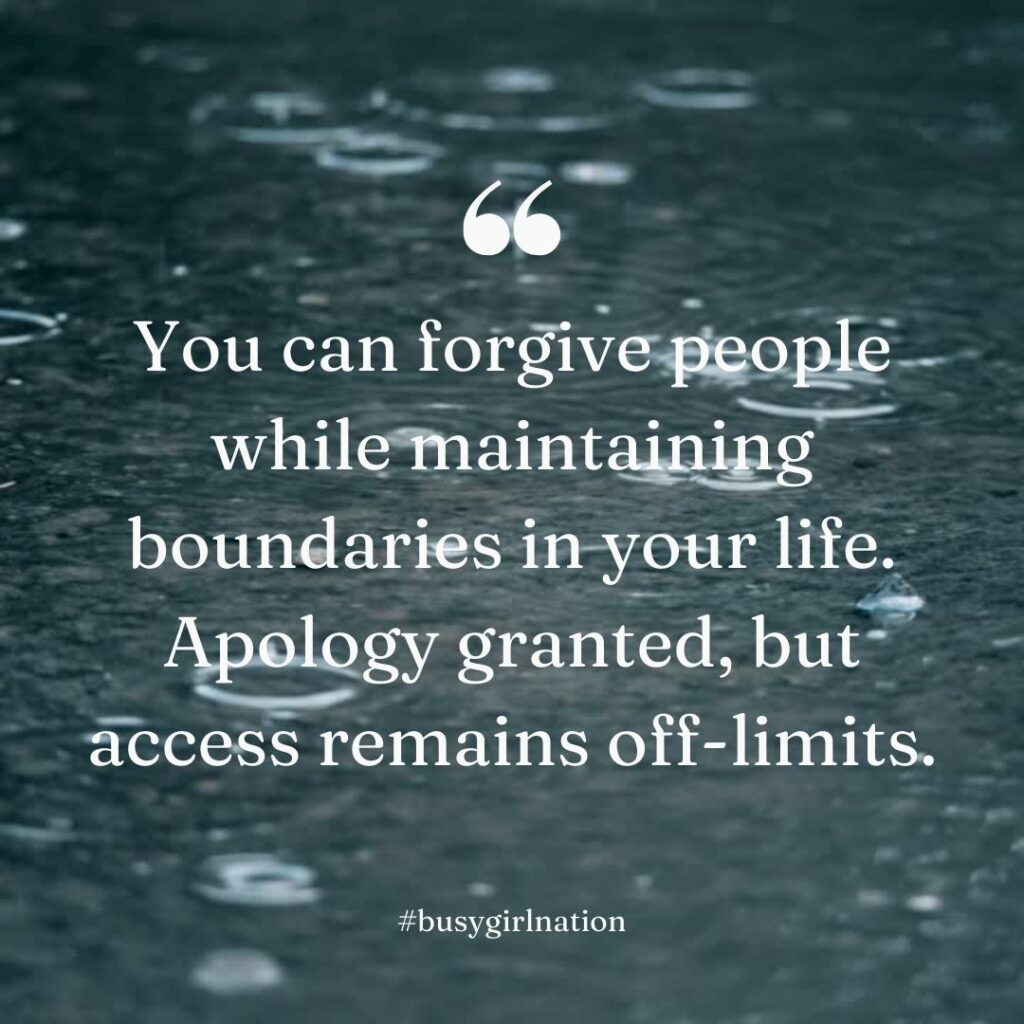5 Steps to Forgive Family & Rebuild a Trusting Relationship – STOP putting it off!

Share
Forgiving a family member isn’t just about letting go of past hurts; it’s a way to heal and rebuild trust in a personal and genuine way. When someone we love betrays us, forgiving them can be tough, but it’s incredibly rewarding. It’s like fixing a bridge that brings us back to our family, so we can walk across it and reconnect on a deeper level, instead of staying on opposite sides, stuck in pain and strained relationships.
Forgiveness not only boosts our emotional well-being but also brings back those special bonds, like sharing laughs during Sunday dinners or providing support in tough times. On the flip side, holding onto grudges and refusing to forgive can bring some serious downsides. It keeps us stuck in a never-ending loop of bitterness and resentment, leading to ongoing pain and strained relationships.
So how do you forgive family members and rebuild those genuine connections? Let’s jump into the best way to forgive them so you can rediscover the warmth of family ties and create new, cherished memories together. 💕👨👩👧👦✨
Did You Know? 27 out of 100
A recent 2019 survey found that about 27 out of every 100 people were not getting along with someone in their family right now (they are estranged) Most of the time, it was with someone really close, like a parent (24 out of 100), a child (14 out of 100), or a brother or sister (30 out of 100). The rest of the people were having problems with other family members. Now, let’s delve into the steps to mend those precious family bonds and the benefits that come with them.
5 Steps to Forgive Family Members
Acknowledge Your Pain
Begin by acknowledging the hurt you feel. It’s entirely natural to experience pain when a family member betrays your trust. Take time to validate your emotions and understand the source of your pain.
Share Your Feelings
When you’re ready, engage in an open and respectful conversation with your family member. Communicate how their actions have affected you. This step is essential for mutual understanding.
Listen to Their Perspective
It’s crucial to listen to your family member’s perspective, even if you don’t agree with it. This can shed light on their motivations and contribute to a more comprehensive understanding.
Accept Their Apology
When they apologize, be open to accepting it. This acceptance is the first step in freeing yourself from anger and pain, allowing for a fresh start in your relationship.
Release Grudges
Letting go of grudges is vital for personal growth. Holding onto them can keep you stuck in a cycle of resentment and hinder your well-being.
5 Steps to Rebuild Honest Relationships
Open Communication
The foundation for mending broken trust in any relationship is effective and transparent communication. It’s vital to not only express your own feelings clearly but also to encourage your family members to share theirs. This open dialogue helps to improve mutual understanding and is the first step towards healing rifts in trust.
Set Bounaries
Establishing boundaries is crucial for maintaining a healthy relationship dynamic. It’s important to make it clear what behavior is acceptable and what isn’t helps safeguard your emotional well-being. These boundaries ensure that everyone understands expectations, which can help prevent conflicts and misunderstandings from happening in the future.
Gradual Trust Restoation
The path to regaining trust is gradual and requires consistent effort. Begin with small, manageable acts of trust towards your family members, and ask for the same in return. Understand that rebuilding trust is a slow process and may experience some setbacks, but consistent small steps can make a big difference over time.
Developing Empathy
To foster a deeper connection and mend trust, it’s important to empathize with your family members. Try to view situations from their perspectives to better grasp their emotions. Cultivating empathy can lead to more meaningful interactions and transformative changes within your relationships.
Embracing Forgiveness
Begin by acknowledging the hurt you feel. It’s entirely natural to experience pain when a family member betrays your trust. Take time to validate your emotions and understand the source of your pain.
10 Must-Read Books to Rebuild Trust and Heal Family Relationships
By taking the steps to forgive and reconnect with your family, you’re not only letting go of the past but also embracing a brighter future. The benefits of forgiveness include improved emotional well-being, stronger family bonds, and a more peaceful life. Remember, holding onto grudges can lead to prolonged pain and strained relationships. By choosing forgiveness, you’re opening the door to a world of love, support, and shared experiences that you might be missing out on. So, don’t let pride stand in the way of restoring harmony in your family today.
This article was human crafted, edited & researched using the assistance of AI and is for information & entertainment purposes only. This article should not be construed as advice and is provided without warranty of any kind.
Share



